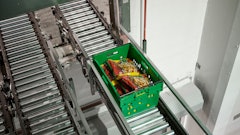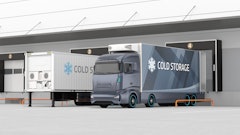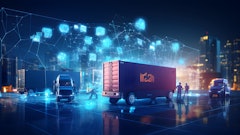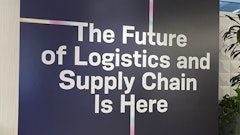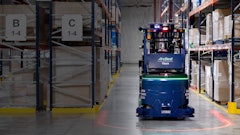
The recent surge of automation and artificial intelligence (AI) in food and beverage supply chain management holds immense promise for operational enhancement in the coming years. With global food requirements projected to double by 2050, highlighted by the United Nations, robust international supply chains become imperative. Stringent standards, regulations, perishability, and customer requirements necessitate meticulous coordination across all phases of food production and transportation.
AI's extensive employment in tasks like inventory management and demand forecasting signifies its pivotal role in decision-making processes. Leveraging AI alongside cloud technology has emerged as a powerful enabler for automating complex tasks and ensuring food and beverage product quality, albeit not without challenges. Strategic integration and data access are imperative for successful AI deployment, underscoring the need for collaborative efforts within the food supply chain.
Automation in the food and beverage industry
All phases of food and beverage production and transportation must be meticulously coordinated due to stringent standards, compliance requirements, perishable goods, and limited stockpiling to meet demand effectively.
Automation through cloud technology and AI has an important role to play here. By providing real-time visibility, seamless collaboration, and data-driven insights, these technologies facilitate optimized inventory management, reduced wastage, and more responsive and efficient distribution processes. Food and beverage organizations that have adopted this approach for numerous mission-critical business systems such as enterprise resource planning, customer relationship management, and inventory management are beginning to do the same with their labeling, ultimately gaining unmatched efficiency, accuracy, scalability, and flexibility to enable supply chain continuity.
Enabling compliance through automation
It’s no surprise that an increasing number of forward-thinking food and beverage companies are turning to a combination of AI and the cloud to solve their supply chain woes. In fact, a recent survey conducted by Loftware found that 76% of firms believe AI will be an important part of their business operations and supply chain within the next three years.
The link between AI and the cloud is a crucial and symbiotic relationship that will play a fundamental role in the development and deployment of AI applications across the food and beverage supply chain. For example, the combination of AI and the cloud is a powerful enabler for automating complex tasks across operations, such as real-time monitoring of labeled products, managing inventory, and enhancing overall operational efficiency. By working together, these technologies can swiftly analyze vast datasets and scrutinize labels, leading to faster error detection and correction. This will prove to be vital for food and beverage companies looking to comply with important regulations such as FSMA 204, Natasha’s Law, and 21 CFR Part 11.
With the emergence of increasingly sophisticated algorithms, these advancements hold the promise of delivering a multitude of benefits, including enhanced accuracy, greater agility, and, most importantly, the protection of consumer health.
Enhancing operational efficiency
Automating critical paths in supply chains using real-time intelligent workflows can help identify projects that are behind schedule or at risk of running late. The ongoing struggle with manual processes across the food and beverage supply chain emphasizes the need for a concerted effort to embrace automation technology and streamline operations to meet the demands of an increasingly complex and fast-paced business environment. Businesses that do so will not only protect themselves from ongoing supply chain challenges but will also set themselves up for future success.
The food and beverage industry faces the daunting task of quickly and efficiently delivering safe and top-quality products to meet consumer demands in the market. The primary objective is to establish standardized and dependable protocols for ensuring product quality and brand protection. Therefore, all phases of food production and transportation must be meticulously coordinated. That coordination highlights the need to utilize AI across various supply chain operations to enhance decision-making processes. To gain a competitive edge, key participants in the food supply chain must devise strategies that integrate AI into interorganizational processes.
Future-proofing supply chains
The integration of automation and AI into supply chain management, particularly within the food industry, promises transformative benefits for years to come. Demands are set to surge for the industry and the role of AI becomes paramount in ensuring the efficiency and resilience of international supply chains.
Leveraging AI alongside cloud technology offers a potent combination for automating complex tasks, improving product identification, and enhancing operational efficiency. Moreover, businesses must embrace automation to help them navigate the complexities of the modern business environment and ensure future success. While automation and AI can futureproof supply chains going forward, it's also crucial to acknowledge and address the barriers to effective AI integration, including data accessibility and strategic planning.
By embracing AI and fostering collaboration among stakeholders, the food and beverage industry can navigate evolving landscapes with agility, ensuring safe and high-quality products meet consumer demands.









